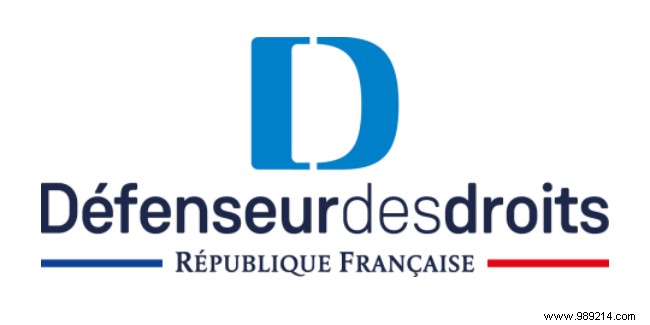
France has an administrative authority independent of the State responsible for ensuring the protection of the rights and freedoms of citizens and promoting the equality of all, both natural and legal persons:the Defender of Rights. This institution can be seized by anyone (individual, company, association, etc.) from the moment there is a situation of non-respect of rights, discrimination, a conflict with an administration or with representatives of public order.
The Defender of Rights is an administrative authority independent of the State whose main missions are to ensure the protection of rights and freedoms, i.e. to defend people whose rights are not respected, but also to promote equality for all in access to rights.
This institution was created and enshrined in the Constitution in 2011. It is the result of the merger of former bodies:the Mediator of the French Republic, the Defender of Children, the High Authority for the Fight against Discrimination and for Equality ( HALDE) and the National Commission for Security Ethics (CNDS).
The Defender of Rights at the head of this administrative authority is appointed by the President of the Republic, after consulting Parliament, for a period of 6 years and his mandate cannot be renewed. He regularly reports on his activity to the President of the Republic and to the parliamentary assemblies.
The institution is notably made up of lawyers who come to the aid and try to respond to the problems raised by those who seize it.
The Defender of Rights is competent in five main areas:
All individuals, as well as legal entities such as companies, associations, etc., have the possibility of contacting the Defender of Rights free of charge in the event that they believe that their rights have not been respected.
This referral can take place in several situations:if a person considers that he is discriminated against, that is to say that he is subject to unequal treatment based on a criterion determined by law such as origin, sex , physical appearance, age, etc.; if a person notices that a representative of public order (police, gendarmerie, security company, etc.) has not complied with the "rules of good conduct", as indicated by the Defender of Rights; if a person encounters difficulties in their relationship with a public service; or if someone thinks that a child's rights are not being respected.
Note:the Defender of Rights can also take action ex officio if he deems that his intervention is necessary in terms of the protection of rights and freedoms.
A person who thinks that his rights are not respected can, first of all, contact the Defender of Rights to find out if his situation falls within the competence of the institution. She can do this by calling the organization on 09 69 39 00 00 or by making an appointment with one of the 500 Defender of Rights delegates, representatives of the institution present throughout the territory in more than 800 points of contact. 'welcome. Their contact details by department are available at this address.
It is also possible to contact the Defender of Rights online on its website.
The Defender of Rights has a specific telephone number and website for referrals in matters of discrimination:3928 and antidiscriminations.fr.
Once seized, the Defender of Rights conducts an investigation and collects information allowing him to know and understand the situation in question.
Then, the approach of this authority consists in finding with the people, companies or public services in question an amicable solution to settle the conflict for which it is seized.
In the event of failure, the Defender of Rights makes recommendations with a view to settling this conflict, or even requests that proceedings or sanctions be initiated. Although he cannot challenge a court decision, the Defender of Rights nevertheless has the possibility of presenting his observations before the courts.
More broadly, the Defender of Rights is authorized to establish recommendations for the protection of rights and freedoms and to submit them to the authorities with a view to modifying the law.